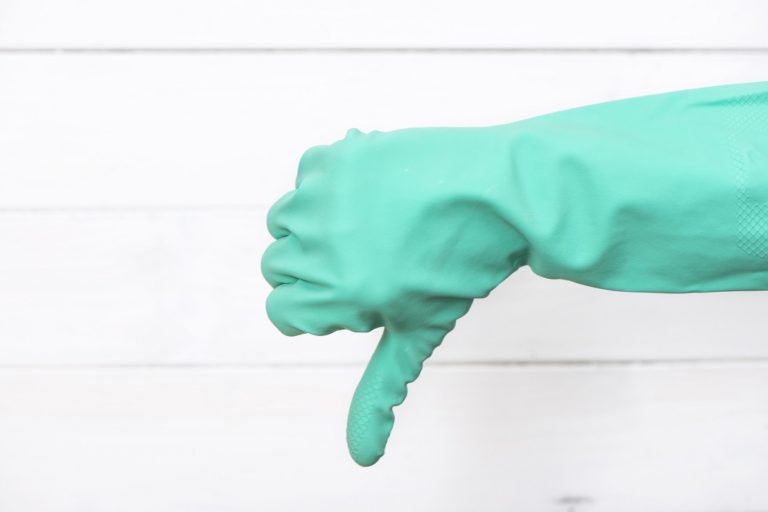Don’t be a dactylochrematophobe!
We use all sorts of terms for discriminating against different types of people; “racism”, “sexism”, “homophobia”, “xenophobia”, etc. However, discrimination can also exist against material objects, often simply expressed as a dislike for something.
In the area of payments and moneyFrom the Latin word moneta, nickname that was given by Romans to the goddess Juno because there was a minting workshop next to her temple. Money is any item that is generally accepted as payment for goods and services and repayment of debts, such as taxes, in a particular region, country or socio-economic context. Its onset dates back to the origins of humanity and its physical representation has taken on very varied forms until the appearance of metal coins. The banknote, a typical representati... More, the COVID-19 crisis has raised the subject of cashMoney in physical form such as banknotes and coins. More being a potential vehicle to spread the virus and therefore a reason not to use it. This is not a new topic but the scope of this pandemic has fueled an unprecedented public debate. The Bank for International Settlements has measured the number of internet searches pertaining to both “cash” and “virus”. “While search interest in these terms also rose in several East Asian and European countries during the 2009–10 H1N1 pandemic, those statistics are dwarfed by the extent of recent searches.” state the authors.
However, there is no scientific evidence to prove this theory and indeed, cash is no more of a vehicle to propagate the virus than a plastic bag, a paperSee Banknote paper. More bag, a door handle, a car key or any other innate object that can be touched by different pairs of hands.
As the ECB states “People make on average 1.2 cash payments per day in the euroThe name of the European single currency adopted by the European Council at the meeting held in Madrid on 15-16 December 1995. See ECU. More area, so it is more likely that they get infected by other objects which they touch more frequently.” (source Financial Times, 25th March, 2020).
The EU also publishes guidelines about employees washing hands when touching cash registers and phones, for example, amongst other items. Let’s also consider the fact that hand-to-hand transmission is actually not the issue, as the virus would still need to enter the mouth or nasal area to effectively enter the human body. Good hygiene practices are always important as proper protection is ensured by not touching one’s face with one’s hands as well as regularly washing one’s hands. The previously cited BIS paper concludes: “To dateThe year in which a medal or coin was minted. On a banknote, the date is usually the year in which the issuance of that banknote - not its printing or entering into circulation - was formally authorised. More, there are no known cases of Covid-19 transmission via banknotes or coins. Moreover, it is unclear if such transmission is material compared with person-to- person transmission or transmission through other objects or physical proximity.1 The fact that the virus survives best on non-porous materials, such as plastic or stainless steel, means that debit or credit card terminals or PIN pads could transmit the virus too.”
Minimizing cash touches between consumers and establishments
Perhaps a more useful line of argument for the future would be how to maximize in-store hygiene by minimizing cash touches between consumers and establishments so as to not pass on any type of disease? In the last few years the EU guidelines mentioned above have been introduced into establishments handling food; gloves, for example, are issued to employees for when they need to handle food and cash, but it still offers a complicated solution as in practice employees need to work with different sets of gloves. The situation became more manageable when, instead of changing gloves, food establishments began to install pay terminals accepting customer’s cash payments and paying changeThis is the action by which certain banknotes and/or coins are exchanged for the same amount in banknotes/coins of a different face value, or unit value. See Exchange. More in cash, thus employees would never need to handle cash. This is the best practice option and the ultimate utopia in terms of hygiene and there are automated cash-handling terminals available today that make this a reality.
Returning to the original thoughts of discrimination against cash, we should be concerned about this as it hurts the most vulnerable in society and those without access to banking or financial services, as well as those whom simply prefer cash as a paymentA transfer of funds which discharges an obligation on the part of a payer vis-à-vis a payee. More option. And what if the digital/electronic system broke down (as has happened in the past)? Cash is the only viable payment medium supported by Central Banks at these times.
Dactylochrematophobia
So finally, I wondered if there is a term for this discrimination? Or if not, should we agree on one? At least it would unify the topic around a specific word. With some fantastic input from colleagues, Guillaume Lepecq and Andreas Papadedes they returned to the Greek roots of the description and came up with “DactylochrematophobiaThe term was coined by CashEssentials and means the fear of handling cash. The word is a combination of ancient Greek words ‘daktylos’ meaning finger, ‘chermato’ meaning money and ‘phobos’ meaning deep aversion, dread or fear. More”, meaning fear of handling cash. For the non-Greek speaking readers, the word is a combination of daktylos meaning finger, chermato meaning money and phobos meaning deep aversion, dread or fear.
As it is fairly lengthy, we’ll shorten it to “DCP” for ease of use.
